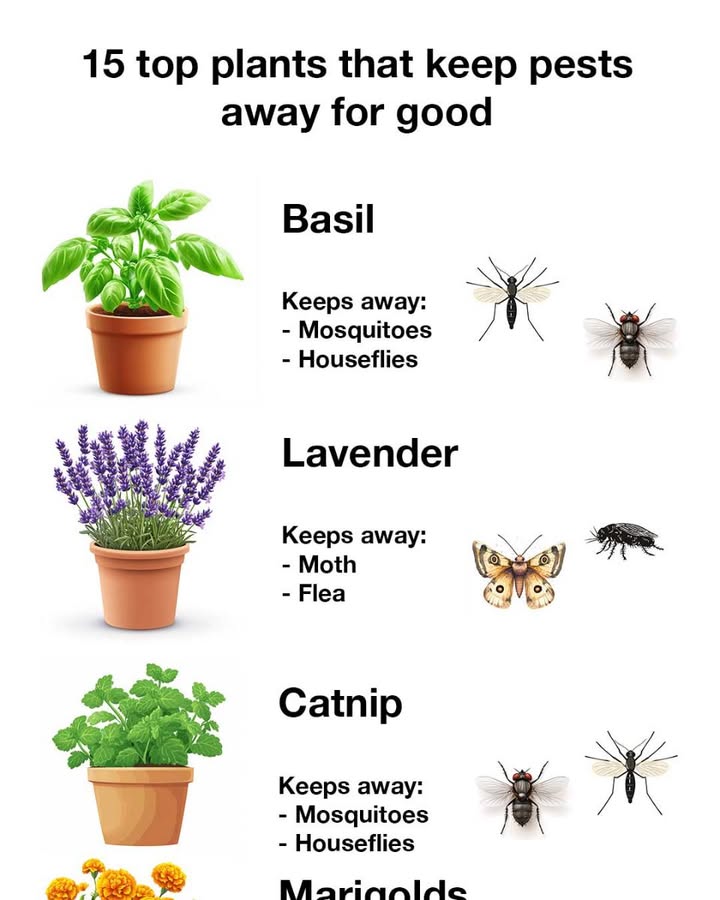4. Marigolds: Protecting Against Aphids and Mosquitoes
Marigolds are a popular choice for gardeners due to their vibrant colors and pest-repelling properties. They release a scent that deters aphids, mosquitoes, and even nematodes. Planting marigolds around vegetable gardens can help protect crops from these common pests.
5. Rosemary: A Barrier for Mosquitoes and Cabbage Moths
Rosemary is a versatile herb that not only enhances culinary dishes but also acts as a natural pest repellent. Its woody scent is known to repel mosquitoes and cabbage moths. Rosemary can be planted in pots or garden beds to create a fragrant barrier against these insects.
6. Peppermint: Repelling Ants and Spiders
Peppermint is a refreshing herb that is effective at repelling ants and spiders. Its strong menthol scent confuses these pests and deters them from entering homes. Planting peppermint around the perimeter of your home or using peppermint oil sprays can help keep these unwanted visitors at bay.
7. Chrysanthemums: Natural Insecticide for Roaches and Fleas
Chrysanthemums contain pyrethrum, a natural insecticide that is effective against roaches, fleas, and other insects. The flowers can be used to make natural insecticidal sprays. Planting chrysanthemums in your garden can help reduce the population of these pests.
8. Lemongrass: Mosquito Repellent with a Citrus Scent
Lemongrass is a tropical plant known for its citrus scent, which is highly effective at repelling mosquitoes. The plant contains citronella, a common ingredient in mosquito repellents. Planting lemongrass in your garden or using its essential oil can help keep mosquitoes at bay.
9. Sage: Keeping Away Cabbage Moths and Carrot Flies
ADVERTISEMENT

